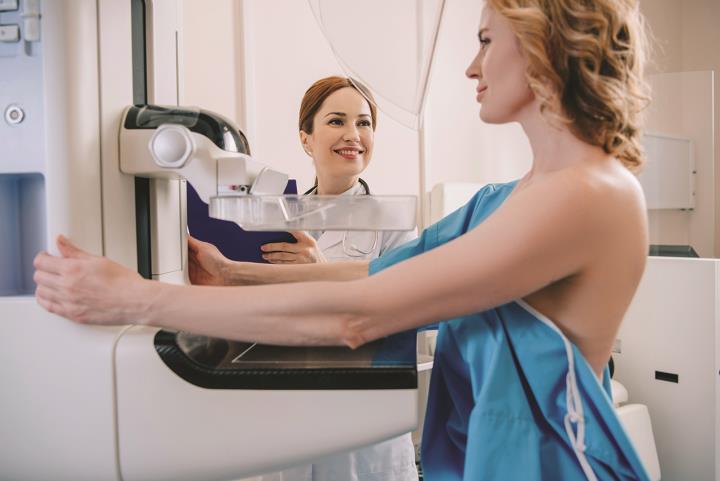Oct 20, 2025

Explaining breast density.
The American Cancer Society reports that breast density is a measure of how much fibroglandular tissue there is in a breast compared to fat tissue. Lobules, which are small glands that produce milk, and ducts, which are tiny tubes that carry the milk from the lobules to the nipple, are considered glandular tissue. Fibrous tissue and fat give breasts their shape and size while holding other structures in place.
Both fibrous and glandular tissue are difficult to see through on a breast cancer screening test known as a mammogram, which is an X-ray of the breast. Mammograms are recommended to women beginning in young adulthood because they can detect the presence of tumors in some women that might otherwise be undetectable until they grow larger and produce noticeable physical symptoms. But some women have more fibrous and glandular tissue than others. In such instances, women may be told they have dense breast tissue.
How do doctors know if I have dense breast tissue?
The ACS notes that radiologists read mammograms and other imaging tests and are typically the ones who identify if a woman has dense breast tissue after examining the images produced by the tests. It's now law in the United States to identify if a woman has "dense" or "not dense" in a mammogram report.
Is dense breast tissue a risk factor for breast cancer?
Yes. The ACS notes doctors are still unsure why, but women who have dense breast tissue are at greater risk of breast cancer than women with less dense tissue.
Are mammograms still necessary if I'm identified as having dense breast tissue?
The ACS advises women to get a mammogram even if they have dense breast tissue. That's because many breast cancers are still detectable even in women with dense breasts. Additional screenings for breast cancer, including 3D mammography and breast ultrasounds, remain a point of contention within the medical community regarding screening for breast cancer in women with dense breasts. Women are urged to speak with their physicians about the need for additional screenings and their options.
Sharing your history.
It's not uncommon for adults to change physicians. In such cases, it's important that women share everything they know about their breast cancer risk, including information regarding their breast density, with any new doctor they visit.
Breast density can affect breast cancer diagnosis. But women identified as having dense breasts should still include traditional screenings like mammograms in their health care routines.









